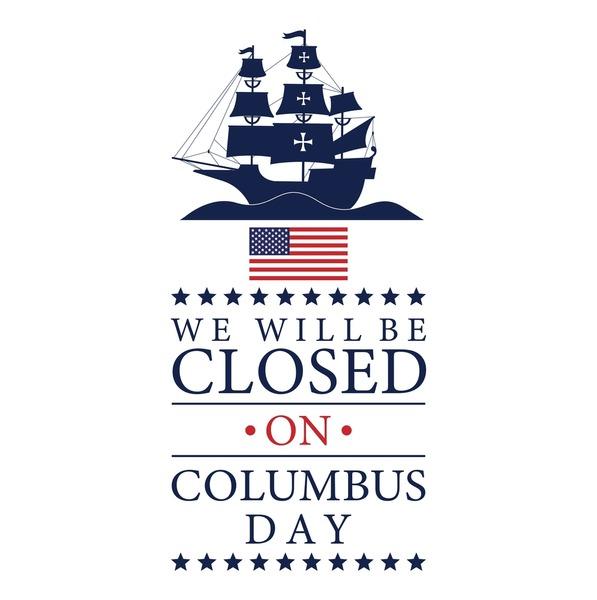Columbus Day and Indigenous Peoples’ Day: Closures, Celebrations, and Cultural Significance
Which Services and Businesses Close on Columbus Day?
As Columbus Day nears, many Americans anticipate a day off, but it’s important to know which establishments will pause operations. Numerous public offices, banks, and schools typically close, disrupting everyday routines. While some retail outlets may remain open, they often operate with reduced hours. Essential services such as postal deliveries, waste collection, and motor vehicle departments are frequently affected, so residents should plan accordingly to avoid inconvenience.
Notable closures generally include:
- Banking institutions and credit unions
- Government agencies and courthouses
- Public and many private schools
- Post office branches
- Libraries and community centers
| Service or Business | Operating Status on Columbus Day |
|---|---|
| Banks | Closed |
| Public Schools | Closed |
| Retail Stores | Open with Limited Hours |
| Post Offices | Closed |
| Libraries | Closed |
The Emergence and Importance of Indigenous Peoples’ Day
Indigenous Peoples’ Day has gained momentum as an alternative to Columbus Day, focusing on celebrating the diverse cultures, histories, and enduring legacies of Native American communities. This observance highlights the strength and perseverance of Indigenous peoples, whose lands and ways of life were deeply affected by European colonization. Across various states and municipalities, the day is marked by ceremonies, educational initiatives, and cultural showcases that bring Indigenous narratives to the forefront, countering their historical marginalization.
Beyond symbolic recognition, Indigenous Peoples’ Day encourages reflection on the historical injustices endured by Native populations, including forced displacement, cultural suppression, and ongoing social disparities. Many local governments and institutions have adopted policies to honor this day either alongside or in place of Columbus Day. Common activities include:
- Educational outreach: Programs in schools and public forums that explore Indigenous histories and current issues.
- Cultural celebrations: Performances, storytelling, and art exhibitions that honor Native traditions.
- Advocacy efforts: Initiatives supporting Indigenous sovereignty and rights.
| Year | Location | Type of Recognition |
|---|---|---|
| 1992 | South Dakota | First statewide Indigenous Peoples’ Day |
| 2017 | Seattle, Washington | Citywide replacement of Columbus Day |
| 2021 | New York State | Official state recognition |
Current Year’s Indigenous Peoples’ Day: Community Engagement and Events
Communities nationwide are increasingly embracing Indigenous Peoples’ Day through diverse and meaningful activities that honor Native American heritage. This year, many urban centers are organizing cultural festivals featuring Indigenous music, dance, and artisan markets that highlight traditional craftsmanship. Educational workshops and public talks aim to deepen understanding of Indigenous contributions and contemporary challenges. Additionally, several municipalities have passed formal resolutions recognizing the holiday, while schools integrate Indigenous perspectives into their lesson plans for the day.
Grassroots organizations and tribal groups are spearheading initiatives focused on healing and cultural preservation, including:
- Storytelling gatherings: Elders share oral histories and ancestral knowledge.
- Land acknowledgment ceremonies: Honoring sacred Indigenous sites and promoting respect for the environment.
- Environmental restoration projects: Volunteer efforts to rehabilitate Indigenous lands and ecosystems.
These activities underscore Indigenous Peoples’ Day as a vibrant celebration of the original caretakers of the land, rather than merely a substitute for Columbus Day.
Practical Advice for Observing Public Holidays and Supporting Indigenous Communities
When planning around public holidays, it’s essential to confirm which services will be closed or operating on limited schedules. Many government offices, banks, and schools close for Columbus Day, while some private businesses may remain open. Checking in advance can prevent missed appointments or service interruptions. Moreover, consider attending cultural events or visiting museums that open in honor of Indigenous Peoples’ Day, providing enriching educational experiences.
Supporting Indigenous communities can be both impactful and respectful through simple actions such as:
- Shopping at Indigenous-owned businesses to bolster local economies and preserve traditional arts.
- Participating in community events that celebrate Indigenous histories and cultures.
- Engaging in self-education by exploring books, documentaries, and lectures that offer authentic Indigenous perspectives.
| Closure Type | Typical Examples | Alternatives |
|---|---|---|
| Government Services | DMV, Courts, Post Offices | Online portals, rescheduling appointments |
| Financial Institutions | Banks, Credit Unions | ATMs, Mobile banking apps |
| Public Transportation | City buses, Subways | Check holiday schedules or reduced service notices |
Looking Ahead: Embracing Diverse Narratives and Observances
As the nation continues to observe both Columbus Day and Indigenous Peoples’ Day, understanding the closures and the deeper meanings behind these holidays is vital. While many institutions close their doors on Columbus Day, the expanding recognition of Indigenous Peoples’ Day offers an opportunity to honor Native American histories and contributions more fully. Staying informed about these observances promotes greater respect and appreciation for the varied stories that shape America’s past and present. For ongoing updates and detailed local information, The Courier-Journal remains a trusted source of comprehensive coverage.







